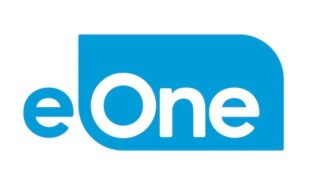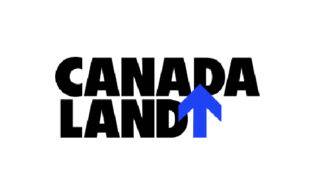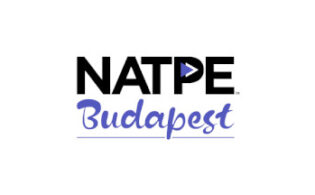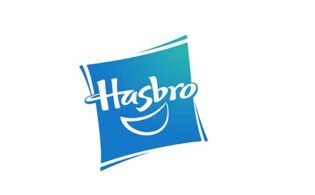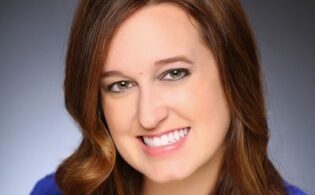When the coronavirus pandemic forced the shutdown of film and television production earlier this year, producers and distributors couldn’t fulfill their deliveries to linear and nonlinear platforms; broadcasters were left with gaps in their schedules and thousands of people were out of work. There was an urgency to restart shooting, but strict protocols were required to ensure the safety of staff, cast and crew. Canada managed to contain the virus, which was the first step needed even to consider going back into production. As Jocelyn Hamilton, the president of Entertainment One’s television division in Canada, explains, much discussion and collaboration with government officials, unions and producers led to strict, but common-sense guidelines. As a result, eOne has several shows shooting again in various locations in Canada.
 WS: Which shows have been moving into production, and how?
WS: Which shows have been moving into production, and how?
HAMILTON: Like everyone, in mid-March, we had to put quite a few of our productions on hiatus. We worked diligently from March until July on how to get back into production. While we watched what was happening with the virus, we were also working collaboratively with the government, unions and other producers, not only in Canada but also around the world, to gain information and collaborate on what [production would] look like. It was all a bit of a black hole; no one knew what that was going to look like. We spent months and tons of conversations, Zoom or otherwise, talking it out. It was heartwarming to see how collaborative everyone was. What do pods look like? How are we going to deal with craft services? We had a committee in the province of Ontario, and there was one in British Columbia, working on protocols that everyone would agree with. The unions and producers were on that committee, so were representatives of the city of Toronto and government on all levels, working diligently to figure out how do we make this happen with the number one priority the health and safety of our cast and crew. Then there are complications. What is happening with insurance? How can we go back in a way that not only is safe but is also cost-effective as much as possible? By the end of June, we had come to protocols that were approved by the government, approved by a committee called Section 21, and we had negotiations with unions. Then, luckily, the government said the country was at a stage that allowed production to restart.
We went back into production in July. Nurses, season two, has been shooting since July. We have Feudal in Nova Scotia, which has been shooting since the beginning of August. We’re shooting Burden of Truth in Manitoba. Private Eyeswill begin in September for season five. Family Law, one of the shows our distribution team sells, has also begun production in Vancouver. Then we have two unscripted series Bake or Break in British Columbia and Ontario, Arctic Vets is shooting in Manitoba. We picked up a few series during COVID, and one of them with Discovery ID will get going this fall as well.
It’s been a lot all at once, and it’s been very stressful, as you can imagine. But the protocols are very well thought through and very strict. So far, knock on wood, everything has been going well.
WS: Insurance is a problem for producers in Europe and the U.S. Is the Canadian government helping out with insurance?
HAMILTON: It’s not a done deal yet; they are in discussions on an emergency fund, similar to the one in the U.K., that [you could access] in the event your insurance has an exemption for COVID. They are working on a government fund with our producers’ association to figure out how to have something in place, especially for smaller producers.
WS: I hear that safety protocols are increasing budgets because it’s taking longer to shoot.
HAMILTON: It’s very different for us than in the U.S. and other regions. Each area is unique. In Canada, we all collaborated quite carefully to ensure that we put in place manageable and common-sense protocols both in execution and cost. We all work together on maintaining those protocols, such as cleaning and craft services done differently, where everyone has to have individual meals. Hair and makeup are done differently. We have a COVID supervisor and nurse on every production. We have what some people call pods or teams so that there isn’t cross-contamination, meaning, people who would have freely crossed through the set don’t need to. It’s common sense at a lot of levels. If you don’t need to be on set, then don’t be. No guests are allowed on set. Executive producers that don’t need to be on set don’t need to be there. It is all just common sense with a focus on the health and safety of everyone, first and foremost.
WS: Are the budget increases impacting broadcasters, channels and platforms’ ability to finance shows? Is the Canadian government helping, and what percentage of increase are you seeing?
HAMILTON: In Canada, we have more costs, don’t get me wrong, and we have figured out how to work with our broadcasters and/or our budgets and/or our systems, to manage through those costs. When the shows were already in production, it became additional costs because those budgets were locked, but we worked through managing that. In the case of new productions that were picked up during COVID, we put the costs into the budget, and we worked through the financing. Again, our broadcasters and our government funding that goes along with our financing, like the CMF [Canada Media Fund], were very helpful. But that’s a case-by-case negotiation, and we managed to work it out. We have an overall healthcare system in Canada that allows us to utilize testing that is available to everyone. The testing here has also been widely available, with results coming back quickly. Our core cast can get tested, and we just made a deal for them to go at a very specific time, and they are cordoned off. So we could manage it through our healthcare system and through our COVID supervisors and nurse.
It’s not the same for every show because we go by the regulations of each province, which include testing and quarantines. So far, it’s worked very well, and everyone is very mature about it. We look at it like it’s all about the greater good of our cast and crew.
WS: After all, it’s better to be at work, even if you have to change your methods, than not to be at work at all.
HAMILTON: That’s the view, and to be honest, we had Zoom calls with the cast. They are the most vulnerable because they can’t wear PPE while they are acting. Then they go off to their area, so they are not in contact with others when they are not acting, or they wear PPE when not on camera. They are the most vulnerable, and the key was to ask actors, in advance of restarting production, how do you feel? We had a lot of conversations with them. It was exciting to see how happy and excited they were to get back to work. We had great cooperation from our casts and crews. Attitude had a lot to do with it. Everyone was stressed and nervous but also excited to be back at work.
WS: I’m a sucker for romance! May I believe that romantic plotlines will continue as long as safety measures are followed on the set?
HAMILTON: Yes, we have guidelines from our actors’ union, and we’re being careful. We are rewriting some scenes. Actors have to be OK with it, so communication is really important. We work through the requirements of the script and whether or not everyone feels OK with it. You can change some things, such as camera angles, and you can write around a few scenes.
WS: As demand for programming remains high, how has library product helped satisfy broadcasters, channels and platforms’ needs?
HAMILTON: Broadcasters’ challenges are quite complicated around the world. Of course, eOne is working to help them with our library. Some of our first-run shows are available, which is fantastic for a broadcaster because it’s not even library; it’s a new show. The broadcasters’ challenges continue to shift and change: something in April is different from June, which is different from August. We can help bring solutions as broadcasters change and shift their programming and scheduling needs.
Development has been one of the things that all our slates, in the U.S., U.K. and Canada, could continue throughout the pandemic because most of it is writing. We continued to option properties, and we’ve been full-on in development, which has been fantastic. We have some amazing properties that are ready to go out, but like anything, timing is the key. We are mindful of that as we bring things out to the market. It’s been exciting to see some of the shows on the development slates in all three of our development territories.
